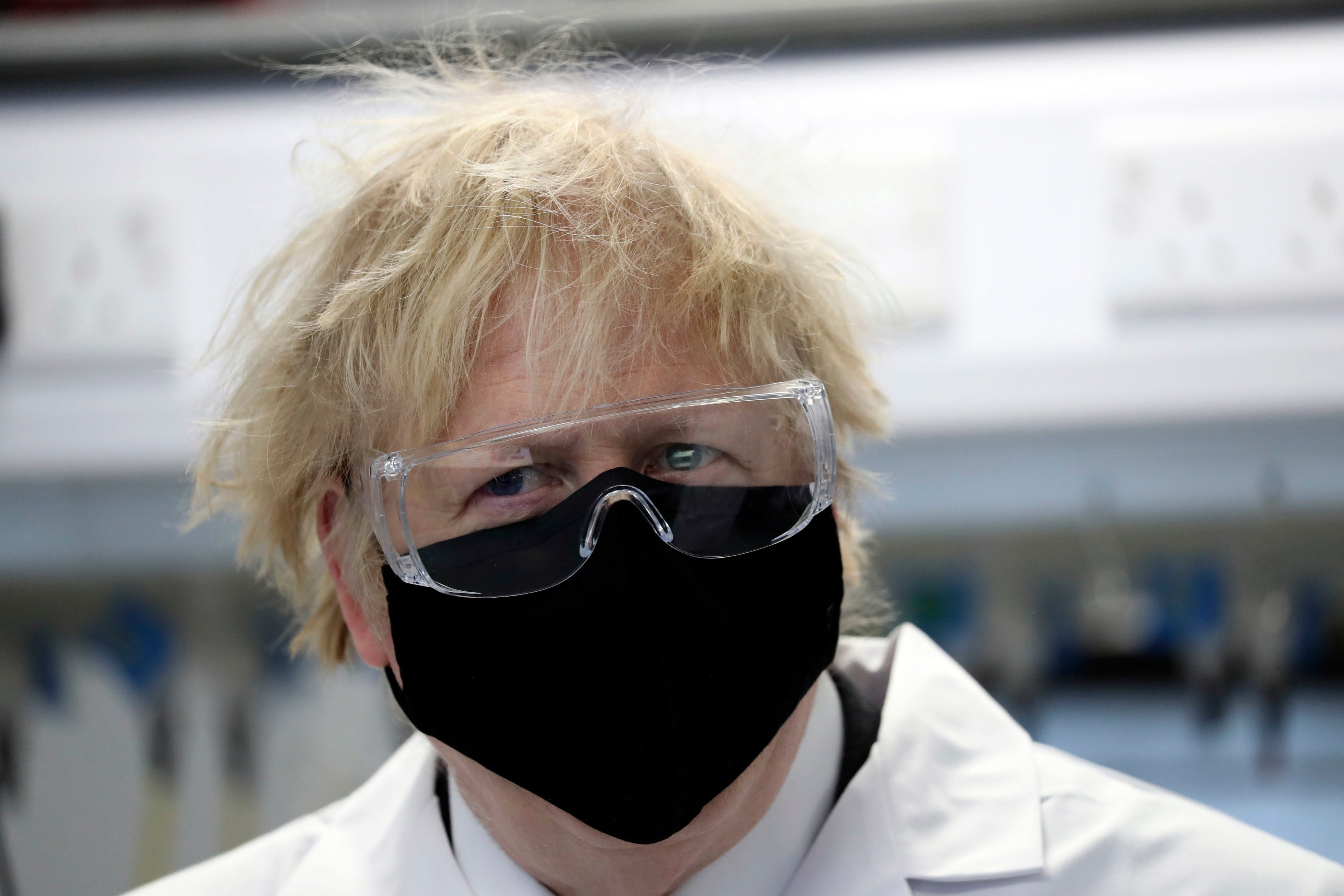Coronavirus: Boris Johnson ‘cautiously optimistic’ ahead of lockdown easing roadmap
Prime minister set to unveil three-stage roadmap on 22 February

Your support helps us to tell the story
From reproductive rights to climate change to Big Tech, The Independent is on the ground when the story is developing. Whether it's investigating the financials of Elon Musk's pro-Trump PAC or producing our latest documentary, 'The A Word', which shines a light on the American women fighting for reproductive rights, we know how important it is to parse out the facts from the messaging.
At such a critical moment in US history, we need reporters on the ground. Your donation allows us to keep sending journalists to speak to both sides of the story.
The Independent is trusted by Americans across the entire political spectrum. And unlike many other quality news outlets, we choose not to lock Americans out of our reporting and analysis with paywalls. We believe quality journalism should be available to everyone, paid for by those who can afford it.
Your support makes all the difference.Boris Johnson has said he is cautiously "optimistic” as he prepares to unveil a roadmap later this month for the easing of lockdown.
Speaking on a visit to the northeast of England, the prime minister confirmed that the unlocking would likely start with education and end with pubs and restaurants.
"I'm optimistic; I won't hide it from you. I'm optimistic, but we have to be cautious,” he said.
But the prime minister declined to be drawn on just when pubs and other lockdown-hit businesses would be able to welcome customers again, warning that case numbers were still high.
It comes as the health secretary, Matt Hancock, made a hopeful prediction that Britain could be living with the coronavirus in the same way it lives with the flu by the end of this year.
"I hope that Covid-19 will become a treatable disease by the end of the year," the health secretary told The Telegraph.
Mr Hancock added that new treatments "over the months to come” would help turn Covid "from a pandemic that affects all of our lives into another illness that we have to live with, like we do flu”.
The prime minister said his health secretary was right, adding: “A nasty disease like this will roll through. A new disease like this will take time for humanity to adapt to, but we are.
“The miracles of science are already making a huge difference, not just through vaccinations but therapies as well. New therapies are being discovered the whole time which are enabling us to reduce mortality, improve our treatments of the disease.
“I do think that in due time it will become something that we simply live with. Some people will be more vulnerable than others – that's inevitable.”
Mr Johnson confirmed he would unveil the roadmap on 22 February for lifting lockdown in England – but would not be drawn on the timescales it might involve.
Asked about pubs, restaurants, and shops reopening, the prime minister said the government would study infection data closely before making its decision, adding: "We've made huge progress with the rollout of the vaccines, that's great, but we’ve also got infections still running very high throughout the country – at levels which last year we would have thought were very high indeed.”
Current thinking in Whitehall suggests that schools would be the first to reopen in March, followed by non-essential shops if the R number continues to stay below one and cases continue to fall.
Hospitality businesses like pubs and restaurants would follow if the fall in cases is sustained.
Mr Johnson said: “Our children’s education is our number one priority, but then working forward, getting non-essential retail open as well and then, in due course as and when we can, prudently, cautiously, of course we want to be opening hospitality as well.
“I will be trying to set out as much as I possibly can in as much detail as I can, always understanding that we have to be wary of the pattern of disease. We don't want to be forced into any kind of retreat or reverse ferret.”
The expected approach to reopening will likely please Mr Johnson’s backbenchers, many of whom are calling for restrictions to be lifted quickly.
But a top scientist advising the government has urged caution and said another wave as big as the one that has been engulfing the UK could hit if all restrictions are lifted too soon.
Professor Steven Riley, a member of the Spi-M modelling group, said the rollout of the vaccination programme did not mean that coronavirus controls could be ended.
“No vaccine is perfect. We are certainly going to be in the situation where we can allow more infection in the community, but there is a limit,” he told BBC Radio 4’s Today programme on Saturday morning.
“In the short term if we were to allow a very large wave of infection, that wave will find all the people who couldn’t have the vaccine for good reason [and] those people who had the vaccine but unfortunately it didn't give them the protection they need.
“I think scientists are genuinely worried. We don’t want to show that it is an excellent but not perfect vaccine by having another large wave in the UK.
“If for some reason we were to choose to just pretend [the coronavirus] wasn’t here any more then there is the potential to go back to a wave that is a similar size to the one that we are in now.”
It comes as the health secretary announced that new treatments would be fast-tracked through clinical trials.
NHS patients could receive new cutting-edge Covid-19 treatments in months rather than years after the government stepped up funding for phase 1 trials.



Join our commenting forum
Join thought-provoking conversations, follow other Independent readers and see their replies
Comments